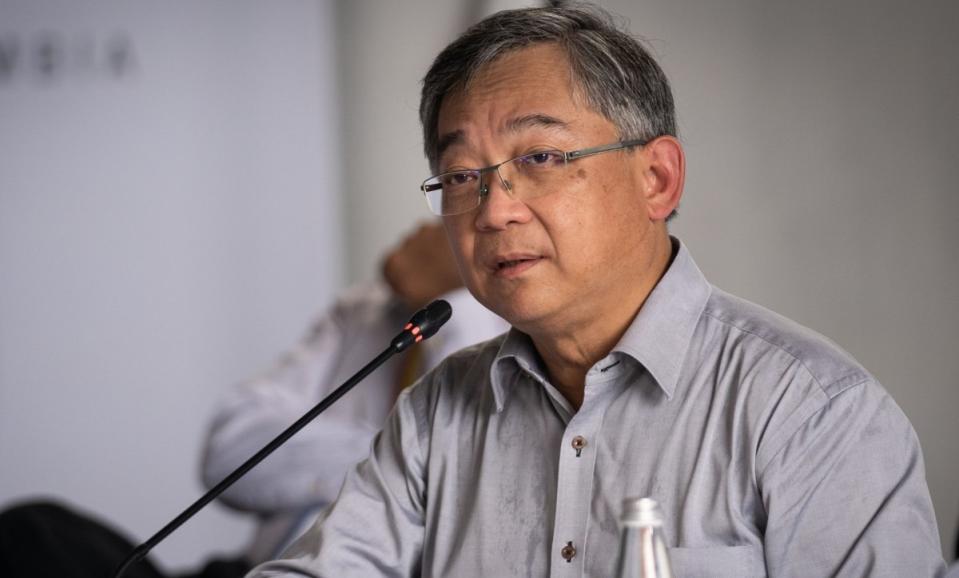Singapore to tighten guidelines on electricity retailers, generation companies

Speaking at the Singapore International Energy Week (SIEW) 2022, Gan says the energy landscape has changed significantly.
Singapore’s energy regulator will introduce guardrails for electricity retailers, after volatile prices forced the exit of some insolvent players here.
The Energy Market Authority (EMA) will “strengthen consumer protection” by tightening regulatory requirements, says Minister for Trade and Industry Gan Kim Yong on Oct 25.
These measures include a central competitive tender for power generation capacity, which will prevent over-supply; mandating standby fuel facilities to guard against gas supply disruptions and stricter eligibility criteria for electricity retailers and wholesale electricity consumers.
Speaking at the opening address of the Singapore International Energy Week (SIEW) 2022, Gan says the energy landscape has changed significantly. “We will need to strengthen the market structure and put in guardrails to ensure that the market continues to function well even under volatile conditions.”
Retail market
Competition among retailers may have driven down electricity prices for consumers, but average wholesale electricity prices were below the cost of production due to an oversupply of gas and generation capacity, says Gan.
“However, when the gas market tightened late last year and prices rose sharply, several independent retailers exited the market. This suggests that some of these retailers were not sufficiently prepared against market volatilities, and had taken large unhedged positions,” Gan adds.
Going forward, EMA plans to strengthen consumer protection by enhancing the regulatory requirements on electricity retailers, so that only “credible” industry players with sufficient financial strength and sustainable business propositions will be allowed to retail electricity to consumers. “[This will] ensure that electricity retailers are sufficiently resilient against market volatility,” says Gan.
On the consumer side, EMA will look into tightening the eligibility criteria for Wholesale Electricity Price (WEP) plans, so that only consumers who are able to deal with price volatilities will be allowed to buy at the WEP.
All consumers can still enter into retail contracts, while consumers who qualify for the regulated tariffs can also still continue to do so.
Gas supply
Today, generation companies in Singapore have significant flexibility to decide on the amount and duration of gas contracts, says Gan. “ While this flexibility was intended to allow generation companies to benefit from a competitive gas market, it does not provide sufficient assurance that there will be enough gas overall in the system as a whole, to meet our energy needs as a whole.”
Late last year, when the global energy market tightened due to a cold winter and worsening security situation, EMA had to introduce temporary crisis management measures to ensure energy security.
These included requiring generation companies to maintain sufficient fuel for power generation, and establishing a standby fuel facility to guard against trends of gas supply disruptions.
EMA will mandate these as permanent features of our market, says Gan. “In addition, EMA will work with the industry to explore ways to aggregate gas procurement and obtain longer term and more secure contracts.”
Power generation capacity
Today, planting decisions are made by private generation companies, which may be based on various factors such as their own business plans, or their outlook for electricity demand. “While each of them will make rational decisions individually, there is no assurance this will translate into sufficient generation capacity for our needs, nationally,” says Gan.
High electricity prices are the usual signal to companies that capacity is tight and new planting is needed. However, the response may be too late since it will take four to five years to build a new capacity, says Gan, along with the risk of uncoordinated multiple plantings leading to excess capacity.
To ensure Singapore has sufficient generation capacity, EMA will introduce a centralised approach to facilitate and guide private investments in new generation through a competitive tender “as and when needed” for capacity that will be required within the next five years.
Interested participants can participate in the process and the most competitive proposal will be awarded a licence to build, own and operate the new capacity, says Gan. No new plantings will be allowed outside of this process to provide greater certainty to investors and avoid risks of over-capacity.
Should there be inadequate interest to plant new capacity, EMA will build the required new capacity.
Gan says: “We are mindful that these adjustments will reduce the flexibility of some market participants. Generation companies cannot plant new capacity as they wish. Consumers may have fewer retailers to choose from. Some may not be allowed to purchase electricity from the wholesale electricity market. However, these measures will bring about a stronger and more secure power system.”
EMA will consult the industry and the public on these proposed changes and put in place such enhancements progressively, says Gan. “Having strengthened our ship, we will be able to focus on our journey towards net-zero emission. This is a challenging, but worthwhile [and] necessary journey.”
See Also:
Click here to stay updated with the Latest Business & Investment News in Singapore
Singapore all-items CPI up by 7.5% y-o-y in September; MAS Core Inflation up by 5.3% y-o-y
Singapore launches National Hydrogen Strategy, could supply half of power needs by 2050
Singapore all-items CPI increase by 7.5% y-o-y in August; MAS Core Inflation up by 5.1% y-o-y
Get in-depth insights from our expert contributors, and dive into financial and economic trends

 Yahoo Finance
Yahoo Finance 